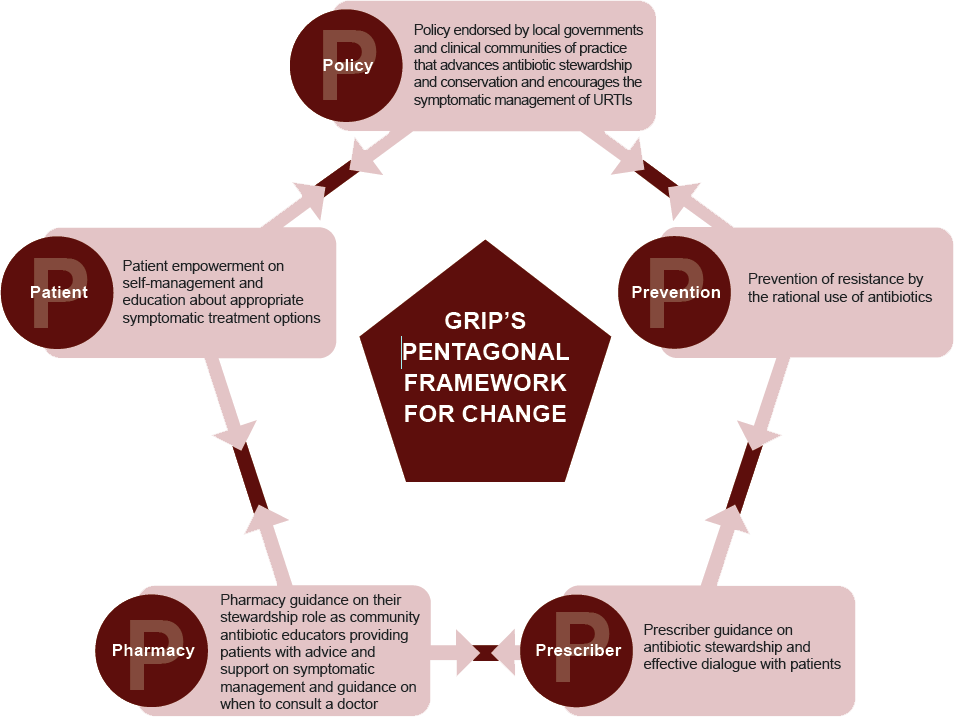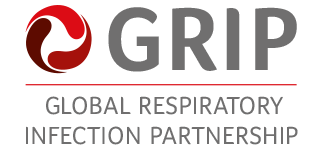Planning for the future
Despite a substantial increase in efforts to harmonise global initiatives around microbial resistance and the intensity of focus being exerted, challenges remain, with inappropriate antibiotic usage still a central issue, particularly in conditions like respiratory tract infections, and often won’t relieve the symptoms that are driving consultations.
The GRIP declaration, as outlined below remains relevant, as does the Pentagonal Framework.
THE GLOBAL RESPIRATORY INFECTION PARTNERSHIP DECLARATION
We, the Global Respiratory Infection Partnership, recognizing the imminent onset of the post-antibiotic era and taking full cognisance of the eclining numbers of new antibiotics in development hereby commit to:
- Consistent, sustainable evidence-based advocacy and intervention for rational antibiotic use and antimicrobial stewardship
- Formulating a framework for non-antibiotic treatment potions for respiratory tract infections, such as sore throat, common colds, influenza and cough
-
Facilitating multi-stakeholder
commitment to antibiotic stewardship and
rational antibiotic use

Visiting pharmacies in Thailand
illustrated challenges in terms of free
access, and for which policy is a critical
driver. In the absence of regulations or
the enforcement thereof, it remains clear
that many consumers still believe that
upper respiratory tract infections may
require antibiotics, if not immediately,
rapidly after early onset of symptoms to
reduce the k of potential further
complications.
In almost all cases, antibiotics were freely sold OTC upon presentation of symptoms, or when asked for directly by name. This isn’t unique to Thailand however in terms of pharmacy accessibility.
In some cases, OTC access is also linked to where patients pay to see healthcare professionals, where evidence from the GRIP members and guest participants illustrate the ongoing impact of patient demands and the increased likelihood of antibiotics being dispensed.
For every stakeholder group, education remains critical, particularly for minor self-limiting conditions. Given the symptoms that appear to be most troublesome to patients in areas like respiratory tract infections, guidance on how to obtain symptomatic relief can play a major role in helping alleviate patient concerns.
Guidelines for the management of upper respiratory tract infections can help drive educational efforts and deliver a consistent approach, however, their value only becomes apparent if they are widely adhered to – hence the issue of policy change.
